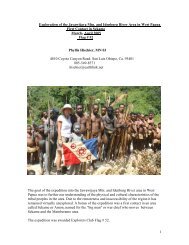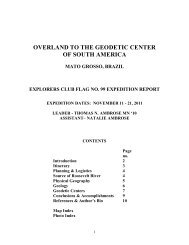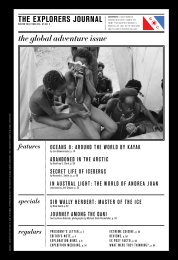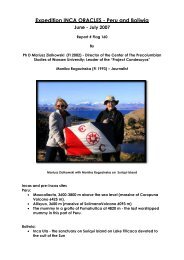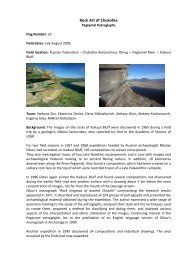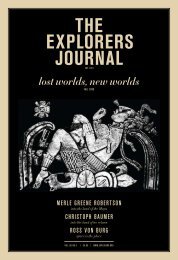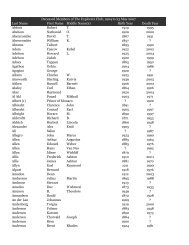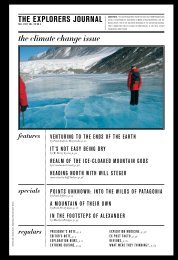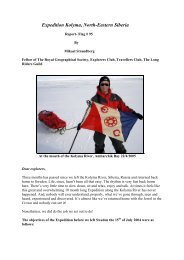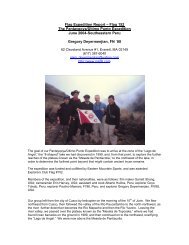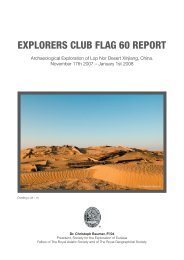the explorers journal - The Explorers Club
the explorers journal - The Explorers Club
the explorers journal - The Explorers Club
Create successful ePaper yourself
Turn your PDF publications into a flip-book with our unique Google optimized e-Paper software.
E x t r e m e m e d i c i n e<br />
your health and safety in <strong>the</strong> field<br />
He alth in <strong>the</strong><br />
final Frontier<br />
zero gravity and o<strong>the</strong>r challenges<br />
by Michael J. Manyak, M.D., FACS<br />
Long before <strong>the</strong> first manned space flight, humanity<br />
dreamed about civilian space travel. As this sci-fi<br />
fantasy nears reality, major concerns about safety<br />
persist. <strong>Explorers</strong> <strong>Club</strong> Fellow Richard Williams, M.D.,<br />
NASA’s Chief Health and Medical Officer, addresses<br />
some major issues of space travel health. Williams has<br />
extensive experience in health care for U.S. astronauts<br />
and development of public policy regarding space<br />
health and travel, and discovered a syndrome related<br />
to balance problems during high G-force flight.<br />
MJM: What are <strong>the</strong> unique medical problems associated<br />
with space travel<br />
RW: Microgravity, space radiation, and isolation<br />
and confinement all can produce changes<br />
in physiology and behavioral health. Adaptive<br />
physiological changes after exposure to <strong>the</strong><br />
space environment can increase <strong>the</strong> risk of<br />
pathologic conditions on Earth. Some examples<br />
54<br />
are transient adaptations of neurologic and balance<br />
systems (resolved within days of return),<br />
bone-mineral density loss in microgravity,<br />
muscle strength loss in microgravity, possible<br />
immune compromise, and cataract development<br />
years earlier than expected. O<strong>the</strong>r problems related—and<br />
possibly unique—to space travel may<br />
emerge as knowledge and evidence grows.<br />
MJM: Aside from normal exclusions for remote<br />
travel (i.e., cardiopulmonary instability, unstable<br />
diabetes, etc.), are <strong>the</strong>re o<strong>the</strong>r medical conditions<br />
that may not impede terrestrial travel that<br />
would preclude space travel<br />
RW: Our experience so far shows that travelers<br />
can experience <strong>the</strong> space environment for short<br />
durations (minutes to days) with medical conditions<br />
acceptable for travel to remote and extreme<br />
terrestrial environments. But like in extreme<br />
Andromeda galaxy, 2.5 million lightyears away. Image courtesy CalTech Palomar observatory.



